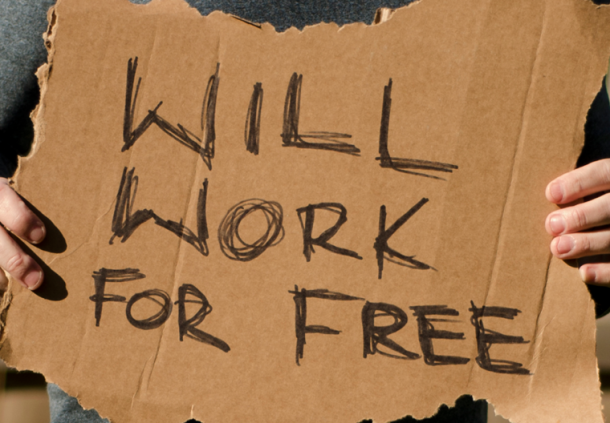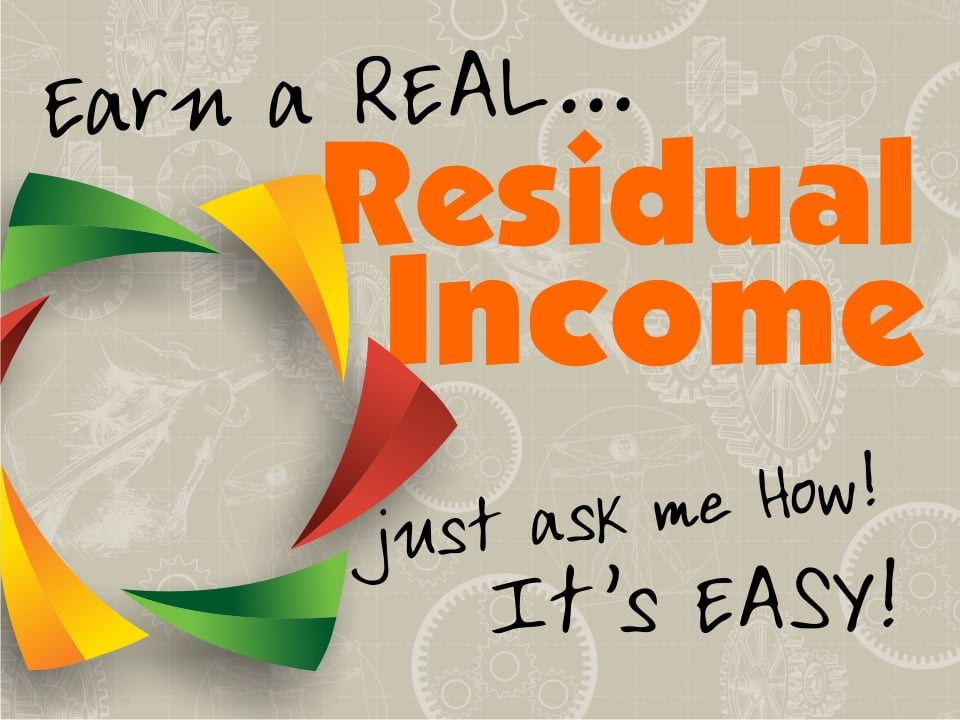You've just been asked to work for free, perhaps with a promise of "great exposure." What should you do?

Whether it comes from a family member or even a potential new client, most freelancers have been asked to work for no pay. Perhaps the request was from a family member that doesn't realize the amount of time put in to the request, or from a client who would like a trial run before hiring a new freelancer. But should freelancers ever work for free?
The question has stirred up debates among freelancers, some insisting it's necessary to work for free in order to get started, others saying that it devalues the work and brings the price for that work down. There's merit to both sides of the argument — here's what freelancers should consider when they're asked to work for free.
Value matters.
Say you are ordering at a restaurant you've never been to before, and you want a really great pizza. There are two options on the menu– a $5.99 value pizza and a $15.99 deluxe pizza. Which pizza do you think is better? Most consumers will say that $15.99 pizza is better, because there's a value associated with price.
The more an item is priced, the more value people will associate with it. Most will automatically equate that $5.99 pizza with a greasy one-topping pie, and that $15.99 with a topping-filled tasty dinner. The same thing applies to things that are free. When you give your work away for free, it can send a message that you are a low skilled freelancer, because there's little value associated with something that's free.
Since free things have little value, freelancers should never work for free, right? Well, not necessarily. Whether or not a freelancer should do some work for free depends largely on the situation. Here are some examples:
When you should work for free
- When you are a new freelancer, and you have no portfolio, you may need to work for free so that you have samples to show paid clients. This is just temporary — a few free projects to show what you can do. Don't place free bids for clients actively seeking freelancers; instead try seeking out a nonprofit and volunteering, creating a product for yourself (like a blog or logo) or opportunities such as guest posts that double as a marketing tool.
- When you work in exchange for marketing. Sometimes, you may not get paid in monetary form, but through exposure. A prime example is the Huffington Post. While they have some paid writers on staff, they publish a lot of guest posts for free. Many writers have grown their business exponentially after guest posting for a large site like Huffington Post, because it offers a big boost in their credentials. That's not to say every freelance writer should write guest posts for free, but for some it is a great marketing tool.
- When you trade services. Say you are a freelancer writer that needs a new logo, and say you meet a graphic designer that needs to update their website copy. There's certainly nothing wrong with trading services.
- When the person that's asking is your mom (or someone equally important to you). There's undoubtedly some people in your life that you owe. Just be sure to set a limit and decide how far to extend family freebies (or if you want to do them at all).
When you shouldn't work for free
- When you have a solid portfolio. I've come across this many times — a potential client asks for sample work done specifically for them, despite having very similar work in my portfolio. Charge for that work. If you are creating something that the client will be able to use, they should be paying for that service. When asked to do a test trial for free, politely tell them your rates for that work. Point them to your existing samples, and mention that it does not have to be long term if the first project doesn't work out. Again, when you offer work for free, you lower the perceived value of your service.
- When the client reaches out to you for something like a free guest post, that should be a warning flag. That's sort of like asking for a gift, it's not exactly polite or good business practice. If they like your work enough to contact you, they should like it enough to pay you.
- When your work isn't going to be connected to your name. Make sure before sending out any guest posts or similar "free" marketing efforts that you know how it is going to be used. If you create a guest post or cartoon that isn't linked back to your website, you've wasted your time. Take the time to write down exactly how your work is to be used and make sure both parties agree.
- When the work isn't "evergreen." Sometimes, you may not get paid right away, but will reap rewards over time. A classic example is starting your own blog. You won't get paid one lump sum like blogging for a client, but those blog posts will continue to earn advertising revenue long after you've completed them. If you do need to create a portfolio, a great way to do so without working for free is to create a blog that has potential to earn you money down the road, long after you've completed it and are getting paid clients.
Most freelancers, at some point, are asked to work for free. For the most post, free work should act as a red flag. When freelancers offer work for free, it devalues their services. Time is valuable, so freelancers shouldn't work for free, at least not often. But, in a few cases, working for free can be a good marketing tool, and may be necessary for freelancers who have no portfolio.
What do you think? Have you ever worked for free? How did it turn out?
If you believe that my message is worth spreading, please use the share buttons if they are visible on this page.
Stephen Hodgkiss
Chief Engineer at MarketHive
markethive.com
Al Zibluk



